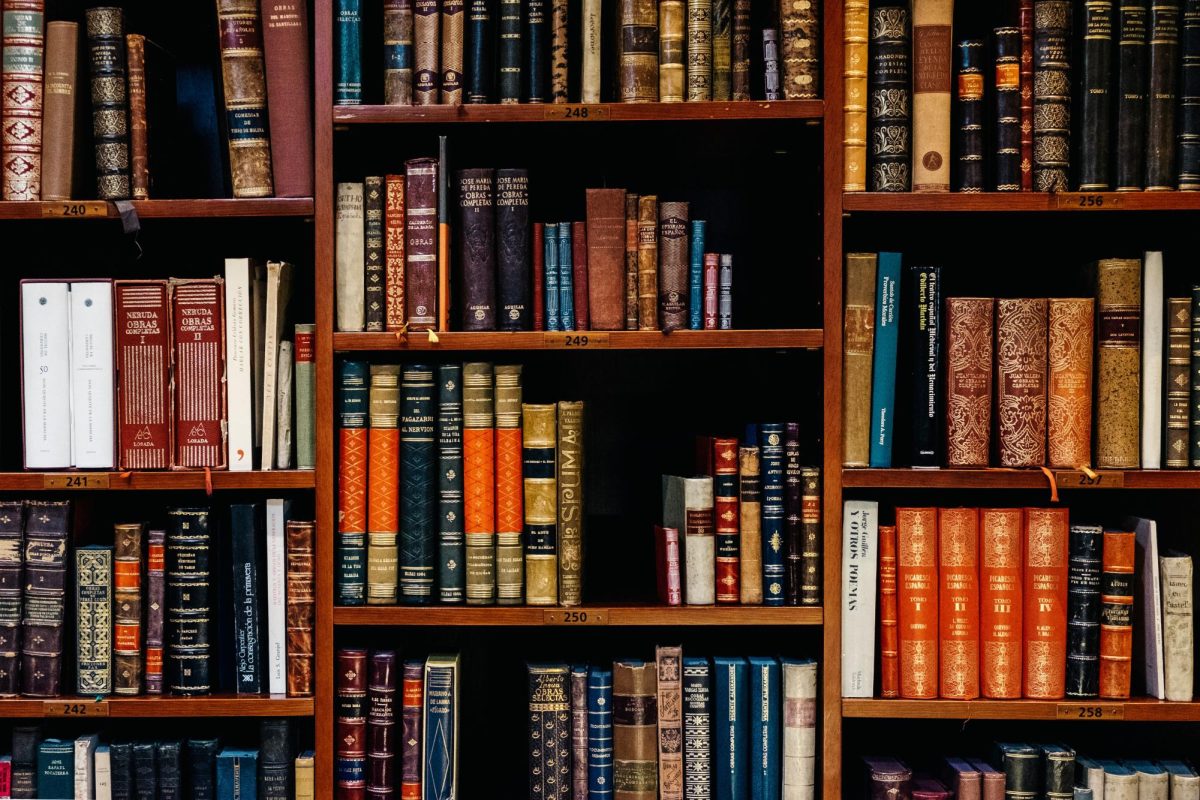Tolstoy, Austen and Dickens. The legends of literature like F. Scott Fitzgerald, who could convey stories with immaculate detail and clarity, seem to have been forgotten in the 21st century.
In the past, these writers and their literature were revered for their ability to toy with words and paint a vivid picture of the story they were telling. Their literature was used in schools and universities to illustrate the full utilization of the English language. Their writings were seen as art and considered as unique as the paintings of Van Gogh, Matisse and Renoir.
These writers were seen as the masters of the English language and their writings were vastly read. The “Great Gatsby” by F. Scott Fitzgerald, “A Tale of Two Cities” by Charles Dickens and “Anna Karenina” by Leo Tolstoy are admired writings that are kept in bookstores across the world because of their stature in the world of literature rather than profitability to sellers.
I recently went to my local Barnes and Noble and as I was looking for another piece of classic literature, I made a harrowing discovery as I sifted through the thousands of books. I realized that it took me 25 minutes to find even the remotest classic in a sea of books. Hid in a secluded corner, in the bowels of the store, a few of the 19th and 20th century classics stood in desolation amongst the sea of modern novels.
These classical writings were untouched, like some ancient relic. Some even had a few specks of dust reflecting on the spine of the covers, and I wondered, “Where has the appreciation for such classic works of art gone?”
Have we as a modern society lost interest in the appreciation of classic art such as literature? Have our lives become so polluted with five-second Instagram reels and Tik Tok clips that we cannot pay attention to read even a single page of a book? Never mind a slightly complex book such as “Anna Karenina.”
I am of the disposition that the value and appreciation of classical art such as literature has faded in modern society where popularity has eviscerated talent and where “hype” has cast a shadow over the mastering of a craft such as writing. A simple example of this would be the NFT trend where individuals paid millions of dollars for intangible computerized works of “art” whilst true artists who spend years and decades mastering their craft struggle to sell their own work.
The Atlantic writes that one who does not read has a “large deficiency of character.”
I am strongly inclined to agree with this sentiment that a non-reader has a significant deficiency of character, as I believe that someone who does not read is similar to someone who does not travel. Both reading and travelling serve as significant character development in an individual, as I believe that both reading and travelling broaden one’s horizons and develops an individual into a well-rounded member of society.
My observations from everyday life have been that our communication skills have devolved over the past two decades. Likely because we as a society do not read, never mind reading some of the more intricate classics. It seems like as time moves on, people are using the most elementary form of the English language. Conversations are flat and contain no color, no descriptions and no emotion, and the worst of all, constant swearing has become the order of the day, an occurrence that would have the stellar writers of the past turning in their graves.
My goal with this article is to bring the necessary attention to the literature gifted to us by the stellar writers of the past which seems to have been forgotten in this modern age. Even if only one person reads a classic because of this article, I would be satisfied that these works of literary art continue to be appreciated.
I want to conclude with a challenge to you. I want you to read a book by one of the authors I have mentioned in this article.
Just a single classical writing, but I want you to read it slowly, savor the words and sentences like a fine wine and appreciate the talent that these writers poured into their works. I want you to try and incorporate some of the more flamboyant words of the English language into your vocabulary and speak with the full might of the English language.
Simon Fox can be reached at [email protected]




















jamie • Oct 5, 2023 at 11:23 pm
Though I agree with the core sentiment; that reading is an integral component of a functioning world, I don’t believe that one must read classics in order to understand and appreciate literature. As with visual art, there is nothing inherently revelatory or incredible about older works, and implying such diminishes the importance of work by modern and contemporary authors/artists. I would go as far as to say that such rhetoric can become reactionary and traditionalist quite easily. Literary canon was established by (wealthy) cis white male intellectuals in ivory towers whose values are incredibly outdated, and to ignore contemporary fiction is often to disregard the work of marginalized authors and to help uphold the oppressive systems of days past. The bit comparing reading to traveling also comes across as rather classist; not everyone has the means to travel and this is absolutely not a deficiency of character. Also, Tolstoy wrote in Russian, which makes the emphasis on classics as mastery of the English language confusing.
johin • Oct 5, 2023 at 2:53 pm
Using Barnes and Nobles as a reference point is not really valid. If you walk into any independent and used bookstores, classic literature is king. If there is not much at a shop it is because they sell so fast that they hard to keep up with. I have been a used bookseller for over 30 years in the valley and in Boston and classic lit is the best selling category. Barnes and Nobles are changing their direction again trying to survive and they have not been a strong bookstore for decades.